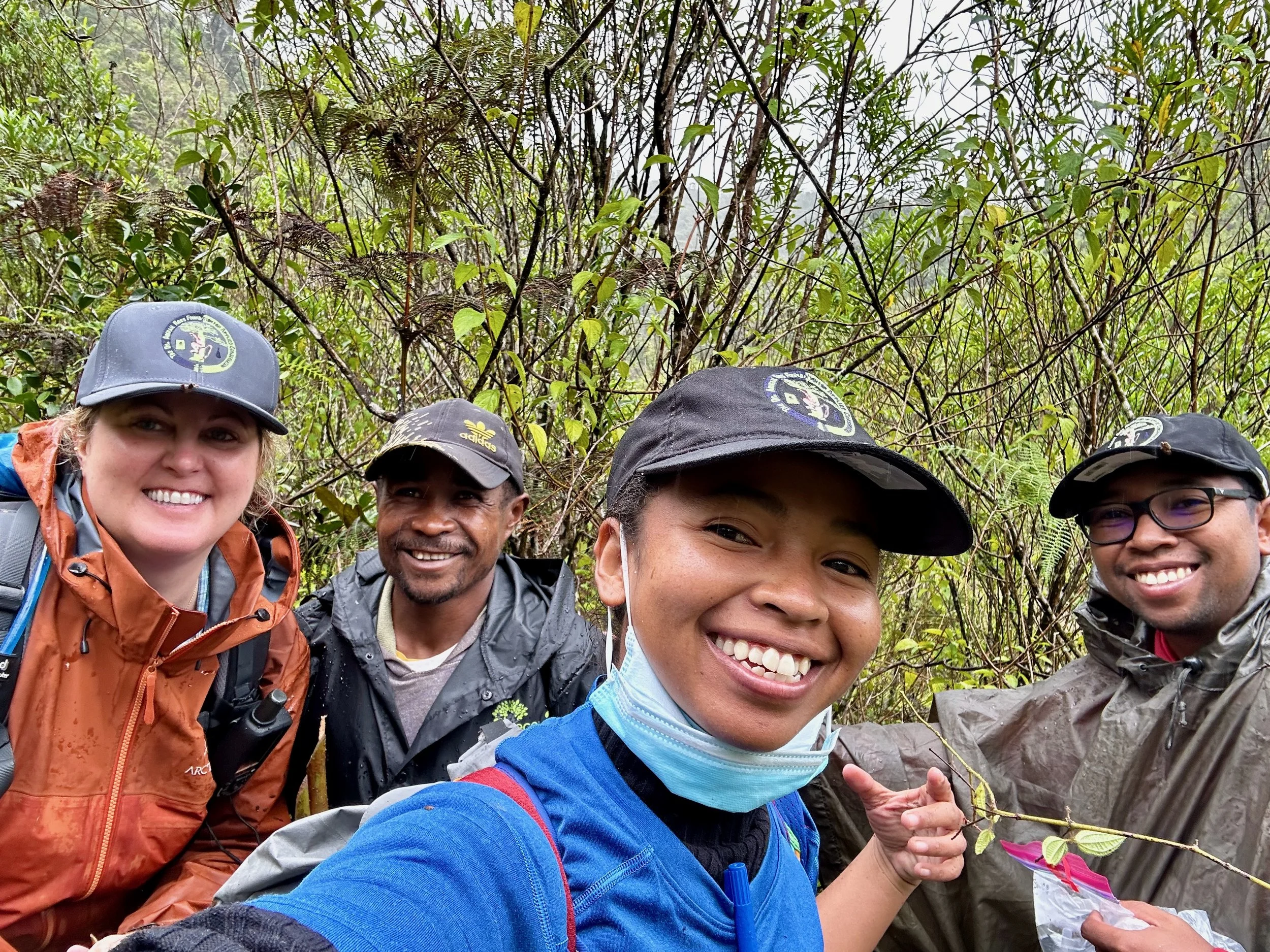Dr. Ross Reflects on STEM Career Journey, Shares Insights on NIU Panel
The Dr. Abigail Ross Foundation for Applied Conservation’s very own Dr. Abby Ross recently had the opportunity to reflect on her STEM career in anthropology at a Northern Illinois University (NIU) career panel last month.
The panel featured Dr. Ross as well as other distinguished NIU anthropology program alumni who are leaders in their fields. At the event, Dr. Ross shared her experience founding and executive directing TDARFAC as well as valuable insights she learned throughout her anthropology career thus far.
Dr. Ross’ participation in the panel comes on the heels of being nominated for membership in the National Society of Leadership and Success through the NIU chapter for her exemplary work in lemur and conservation research. She earned her M.A. in biological anthropology from NIU.
Here are some highlights of what Dr. Ross shared with attendees as part of a Q&A session on the panel:
How Dr. Ross Decided on her STEM Career Path:
“Growing up, I was always interested in animals and was fascinated by their behavior. A pivotal moment was when I was a freshman at UW-Madison and had the opportunity to chaperone my former high school biology class on a trip to the Galapagos Islands – while at the same time taking my first intro to anthropology class. These experiences first exposed me to wildlife conservation and to the pressures endangered species are experiencing in a profound way, leading the way to the graduate anthropology program at NIU and ultimately to my current career.”
How Dr. Ross’ Degree Aids in Her Current Position:
“My degree provided me with the unique opportunity to create my own position and prepared me for designing and managing conservation research projects in Madagascar. It also helped prepare me to know what to look for when deciding on the types of projects we want to support collectively as an organization.”
What Dr. Ross Enjoys Most About Her Anthropology Career:
“Fieldwork, developing conservation projects in Madagascar, and seeing the Foundation grow and take shape. I do not enjoy filling out forms quite as much, but it’s necessary to enable our team to achieve our goals!”
What Surprised Dr. Ross About Her Anthropology Career:
“The results you see are rarely the work of one person. There is a huge amount of collaboration that goes into developing ideas and executing projects, and it’s awesome to see and be a part of the bigger picture.”
Best Academic Advice Dr. Ross Received:
“’Everyone puts on their pants the same way.’ Academic settings can be intimidating and competitive, so it’s important to remember that fact – and to never be afraid to speak up or ask questions.”
School-to-Job Transition Reflections and Advice from Dr. Ross:
“I was an adjunct professor at Rock Valley College while finishing my Ph.D. and continued teaching there after finishing grad school, so in a way I didn’t have a traditional transition from school to work since I remained in the same job. However, transitioning from teaching to leading the Foundation has been a rewarding and exhilarating experience.”
“The anthropology field will continue to develop and change, so it is important to stay current. Being adaptable will be paramount, as inevitably there will be challenges and setbacks, so it’s important to be open and flexible throughout your anthropology career.”
Dr. Ross’ Advice to People Interested in an Anthropology/STEM Career:
“Participate in a field school and take conservation action in your own community like joining local conservation groups, participating in clean-up events, planting native species, volunteering for habitat restoration, and/or engaging with local government.”
Dr. Ross is Paying it Forward – With Female Student Mentorship
While at NIU, Dr. Ross studied under the mentorship of Dr. Leila Porter, who also served as her master’s thesis advisor. Inspired by her work with Dr. Porter, Dr. Ross went on to mentor several female students at the University of Antananarivo in Madagascar – which ultimately sparked the creation of TDARFAC!
As part of her mentorship, Dr. Ross has served on the Master’s Thesis Defense committee at the University of Antananarivo for the following student projects and posters:
Master’s Degree Projects:
Department of Anthropobiology and Sustainable Development, University of Antananarivo
Marie Mauricette Rajaobelina
A Comparison of Social Hierarchies in Coquerel’s Sifaka in Two Distinct Microhabitats
Update: Mauricette is currently pursuing her Ph.D., and Dr. Ross continues to serve as her mentor. She recently participated in the Vahatra Field School with Dr. Steve Goodman in Mantadia National Park.
Marie Jeanne Razafiarivony
Dietary Adaptation Strategies of Avahi laniger During the Dry Season in NAP Tsinjoarivo-Ambalaomby
Student Posters:
Niony Mamy Koloina Rakotoarivelo
Rakotoarivelo NK., Ranaivoarisoa JF., Raharison JL., Ross AC., Irwin MT.
Relationship Between Daily Distance Traveled and Group Size of Propithecus diadema in Mahatsinjo Fragmented Forest, NAP Tsinjoarivo-Ambalaomby
Scientist Day, University of Antananarivo
Marie Jeanne Razafiarivony
Razafiarivony ME., Ranaivoarisoa JF., Ross AC., Raharison JL., Irwin MT.
Dietary Adaptation Strategies of Avahi laniger During the Dry Season in NAP Tsinjoarivo-Ambalaomby
Scientist Day, University of Antananarivo
Motivated by her experience with the female Malagasy students as well as with Dr. Porter at NIU, Dr. Ross incorporated conservation education and career mentorship as key components of the TDARFAC mission. This led to the development of the Foundation’s the Advocates for Change: Future Conservationist & Activist Award, which honors the remarkable achievements of early-career conservationists and activists in applied conservation.
Learn more about how Dr. Ross and TDARFAC are supporting and championing STEM and anthropology education at NIU and beyond by visiting and following the Foundation’s updates on TDARFAC’s Facebook and Instagram pages. Also, stay tuned for the upcoming announcement of the winner of the Advocates for Change: Future Conservationist & Activist Award.






